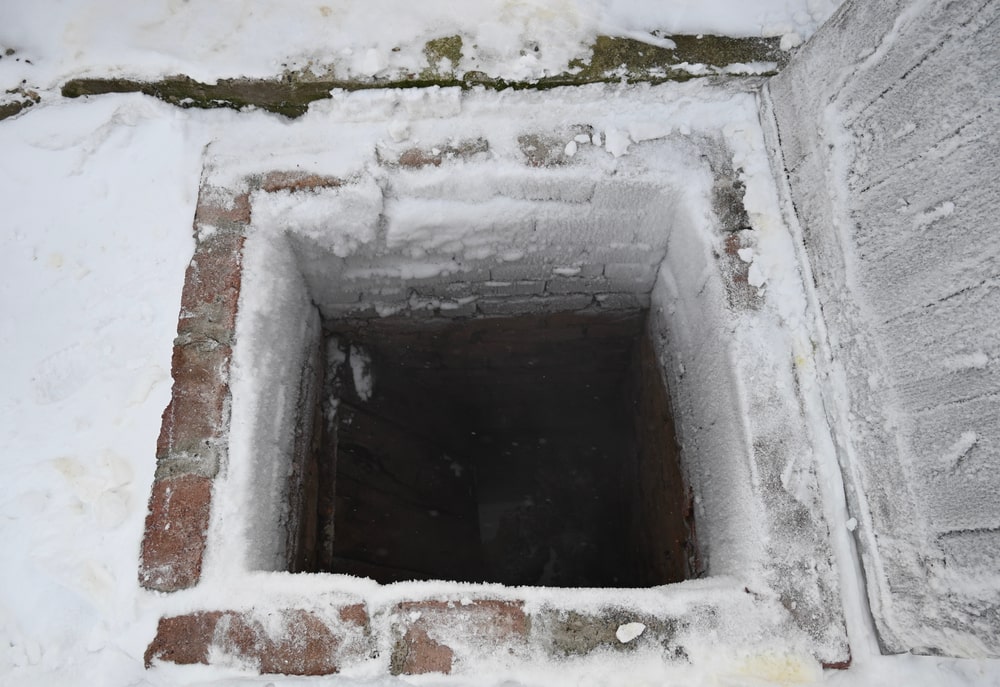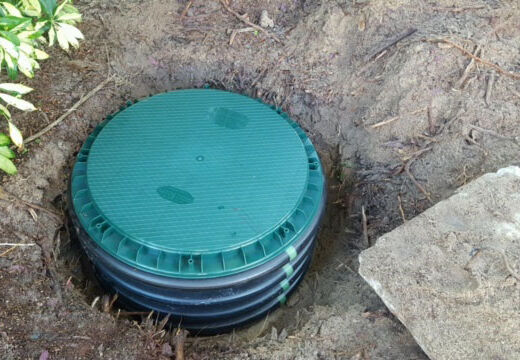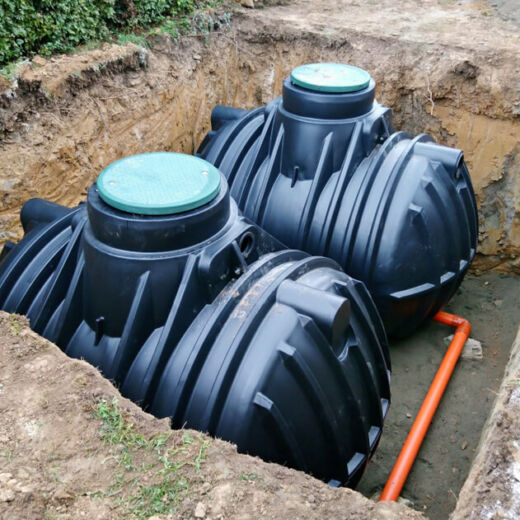It happens more often than we would obviously like – septic systems can freeze during harsh winters in Canada. Telltale signs that your septic system is frozen are septic alarms, a high-level septic tank (water) with a running pump, and worst – sewage backing up into your home. Keep in mind that these symptoms could also be indicative of other issues needing immediate repair and are not always due to a frozen septic system.
A few most common situations that can cause a frozen septic system include but are not limited to:
- The septic system delivery line from the tank to the field is too shallow
- The septic system line is above or too close to the ground’s frost level
- Compacted soil above the delivery line causing a ‘bow’ or ‘saddle’
- Lack of or infrequent use
- A septic line that isn’t pitched properly
- A delivery line without a drain-back feature (hole)
In the winter, septic system repair services are just as important as any other time of the year, including maintenance and inspections. Winter septic tank services can help prevent an emergency when your toilets and sinks stop working or, worse yet, sewage backup during a cold snap. You can prevent these stressful scenarios with the following tips.
1. Don’t Shovel the Drain Field Area
Some homeowners make the mistake of shovelling snow off of the drain field area, thinking that snow will cause a frozen septic system. However, a blanket of snow helps insulate the septic drain field areas. While it might sound counterintuitive, avoid shovelling the area and keep the blanket of snow on top.
The layer of snow retains the drain field’s geothermal heat. Without this layer, frost can enter deeper into the soil and cause the drain field lines to freeze. When the drain field freezes, there’s no way for the wastewater to enter the soil. Eventually, a frozen drain field will cause a backup in the system.
2. Add a Layer of Insulation
Our Alberta winters typically see Chinook winds blow in warm air that melts the snow and a sudden cold snap that can cause all kinds of cold-weather issues, including frozen pipes. The freezing cold can become a problem if there’s no layer of snow to insulate the drain field, making it vulnerable to frost.
You can help protect your septic system over the winter by allowing the grass in the drain field area to grow longer in the fall to help insulate the soil. Add layers of mulch or leaves over the drain field area to act as a natural insulation.
3. Avoid Driving Over the Delivery Line Path
The snow and earth over the delivery line and drain field should not be compacted because they will become heavy, causing soil compaction and septic system problems. Avoid driving or placing any heavy equipment over the area. If you are expecting visitors or other service technicians, place a warning sign around the septic system delivery line path and drain field to keep people from driving over top.
4. Have Your Septic Tank Pumped
A septic system needs to be used regularly for the septic tank to stay warm. The warm water we use for showers, laundry, general washing, and the water flushed down the toilet prevents the system from freezing, even in the coldest weather.
However, with infrequent or a lack of use, the septic system does not receive wastewater, leaving it vulnerable to freezing. This can happen when the house is vacant, even for just a week. Before you leave for winter holidays, schedule a septic tank pump to prevent the components from freezing.
5. Schedule an Annual Septic Tank Inspection
Your septic system is a piece of equipment and, like all equipment, requires regular inspections to keep it working properly. At SepTech Canada, our goal is to identify potential problems before they become larger issues and require an expensive replacement.
Our septic system inspections are thorough – we don’t just inspect the tank, as that’s only one part of the system. We check the integrity and condition of the entire septic system, including a full assessment of the internal tank plumbing, delivery line, drain field area, mechanical equipment condition, alarms, and more.
6. Call For Professional Assessment and Repair
DO NOT discharge your septic system to the surface. Your septic system (wastewater system) is critical infrastructure to your home; the wastewater needs to have an exit ability. Wastewater management is a highly regulated and monitored consideration of the Health & Safety of the community at large, as well as Environmental Management at all levels of government.
Discharging septic wastewater arbitrarily to the surface or elsewhere can jeopardize your health and that of your neighbours, pose a risk to wildlife, damage the environment on & off of your property, and bring significant fines of up to $100,000.
Licensed and certified trades are available with the knowledge and experience to repair your septic system quickly. Our services are within compliance of the regulations to provide long-lasting confidence in your septic system’s operation… year-round.
Where to find emergency septic services
SepTech Canada specializes in repairing residential septic systems in the counties of Strathcona, Sturgeon, Beaver, Camrose, Leduc, and Parkland. Whether your septic alarm has been triggered or you notice some early warning signs of a septic system problem, give us a call, and we can help.




